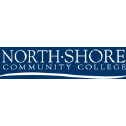What do they do?
Park vehicles or issue tickets for customers in a parking lot or garage. May park or tend vehicles in environments such as a car dealership or rental car facility. May collect fee.
Also known as:
Hiker, Lot Attendant, Parking Attendant, Parking Cashier, Parking Lot Attendant, Parking Ramp Attendant, Valet Attendant, Valet Parker, Valet Parking Attendant
-
-3.6%
Change
Ranks #63 in job growth rate340Job Openings
Ranks #15 in net job growth
Looking for colleges that offer a specific major? Use the College Match Tool to find your best-matched schools and discover your estimated Net Price!
- High school diploma equivalent (42%)
- Some college, no degree (23%)
- Less than high school diploma (15%)
- Bachelor's degree (10%)
- Associate's degree (7%)
- Master's degree (2%)
- Doctorate or Professional Degree (1%)
People in this career often have talent in:
- Far Vision - The ability to see details at a distance.
- Oral Comprehension - The ability to listen to and understand information and ideas presented through spoken words and sentences.
- Oral Expression - The ability to communicate information and ideas in speaking so others will understand.
- Near Vision - The ability to see details at close range (within a few feet of the observer).
- Speech Recognition - The ability to identify and understand the speech of another person.
People in this career often do these activities:
- Assist customers to ensure comfort or safety.
- Inspect motor vehicles.
- Apply identification labels or tags.
- Balance receipts.
- Prepare cash for deposit or disbursement.
- Monitor surroundings to detect potential hazards.
- Collect fares or payment from customers.
- Drive passenger vehicles.
- Provide transportation information to passengers or customers.
- Clean facilities or work areas.
- Direct vehicle traffic.
- Assist passengers during vehicle boarding.
- Maintain vehicles in good working condition.
- Move materials, equipment, or supplies.
- Request emergency personnel.
- Supervise employees.
- Prepare employee work schedules.
- Review customer information.
This page includes data from:

 Occupation statistics: USDOL U.S. Bureau of Labor Statistics Occupational Employment Statistics
Occupation statistics: USDOL U.S. Bureau of Labor Statistics Occupational Employment Statistics
 Videos: CareerOneStop, USDOL/ETA and the Minnesota Department of Employment & Economic Development
Videos: CareerOneStop, USDOL/ETA and the Minnesota Department of Employment & Economic Development














